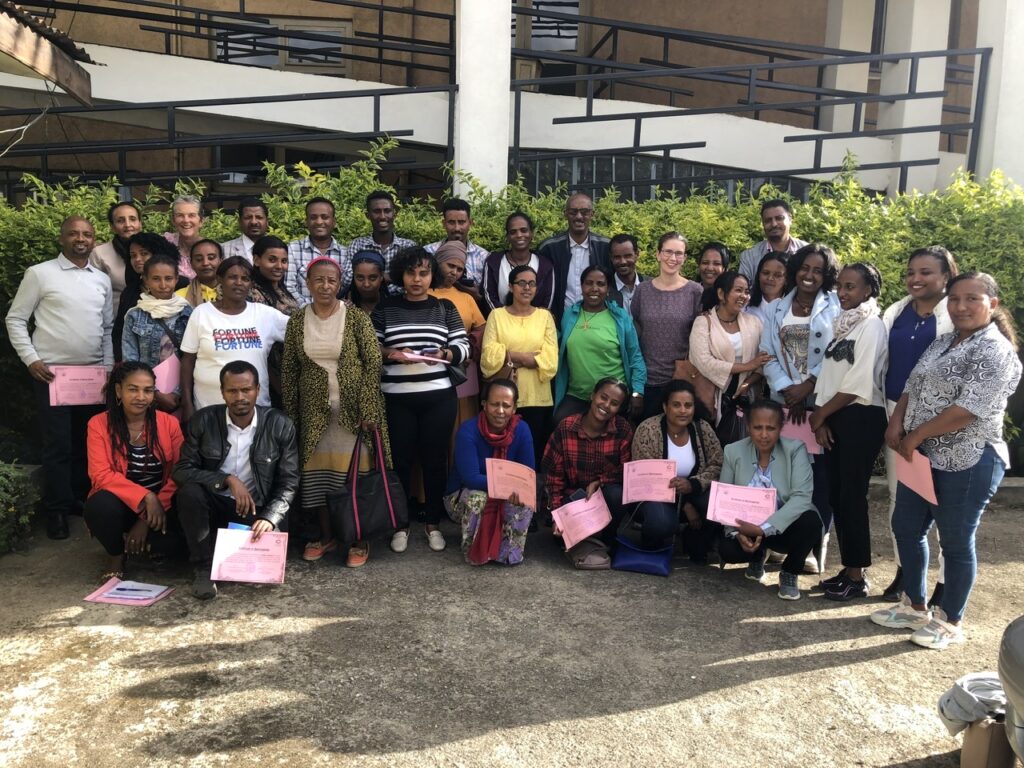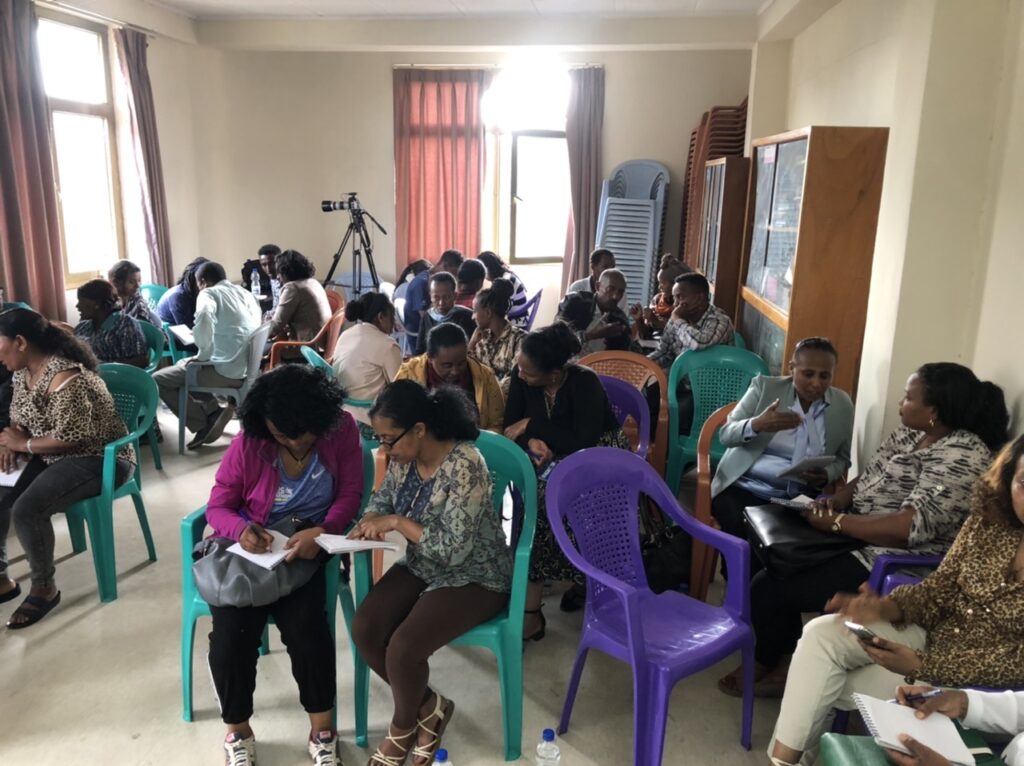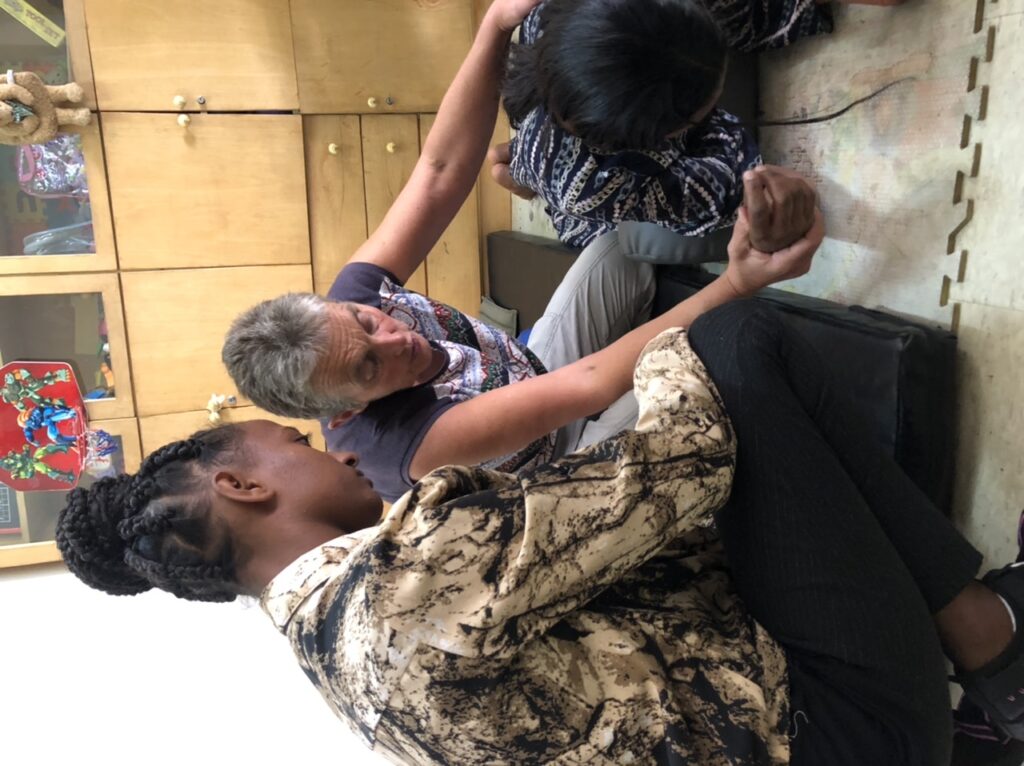A week of delivering training in Ethiopia complete
In October, myself and a friend Jude delivered some training to a group of 30 – 35 Ethiopians, all of whom have roles working for Ethiopian charities that focus on supporting children living with disabilities.
these are my reflections on that week.
It has been an incredible week, with some wonderful times of sharing information in both directions. Whilst Jude and I were seen as the visiting trainers, we certainly haven’t been the only ones doing the imparting of info, and it has been fab to see the participants gradually getting to know each other and sharing information, ideas and insights based on their local and contextual knowledge and experiences.
The loose theme of the week has been around rehab for children with disabilities, based mainly on the fact that I have a qualification as a physiotherapist, and Jude is qualified as an Occupational Therapist. The reality is that neither of us practise any more, so for both of us there was a lot of digging deep into the memory bank, but the sessions seem to have been very well received. We also covered other topics that go wider around the care of the child, team work and interpersonal relationships, growth and human development, and understanding the impact of trauma on the brain.
The participants of the training between them represent 8-10 organisations (it differed on different days a little bit), one of which is CRED Partner Berhan Lehetsanat, who were hosting the training. CBISDO, another CRED partner, was also represented. Many of them were Community-Based Rehab workers (CBRs), others were physios, and there were various other roles represented. When I asked the participants what were the main diagnoses that they came across in the children that they worked with it was as varied as you’d expect: physical ones like cerebral palsy, hemiplegia, talipes, spina bifida, muscular dystrophy; intellectual disabilities; autism; downs syndrome and a range of non-diagnosed, and or complex multi-faceted disorders.
What came across most strongly to both Jude and myself, was the depth of the knowledge that existed in the room when the participants were together. Each of them has their own wealth of experience and knowledge that has been built up over the years. A few have ‘official’ qualifications, but for many their qualification is experience-based. For example, there is now a degree course for physiotherapists at the University of Addis Ababa, but training for OT does not exist. However, that doesn’t mean that the CBR workers don’t know about practise the principles of OT, they just didn’t realise that it had that ‘label’. But together, they had so much knowledge, so much information that they could share with each other.
So this training was really about facilitating that sharing and networking. Jude and I were just there as a front to entice them along! Yes we shared some useful info, but ours was less contextually focussed. The real depth to the training came as they shared together, and took the generic principles and put them into practice based on the resources available to them, plus cultural considerations and the case studies of children that they were working with.
To sit alongside these folks who achieve so much despite such limitations has been a real honour. It is humbling to hear them share about their work, and to see the passion that they have to ensure that every child has access to what they deserve by right. My prayer is that the connections that have been made between these child-rehab practitioners of Addis and beyondwill continue, and that together they can strengthen each other and journey forwards, more equipped and empowered, to bring positive opportunities to children living with disabilities, and their families.







